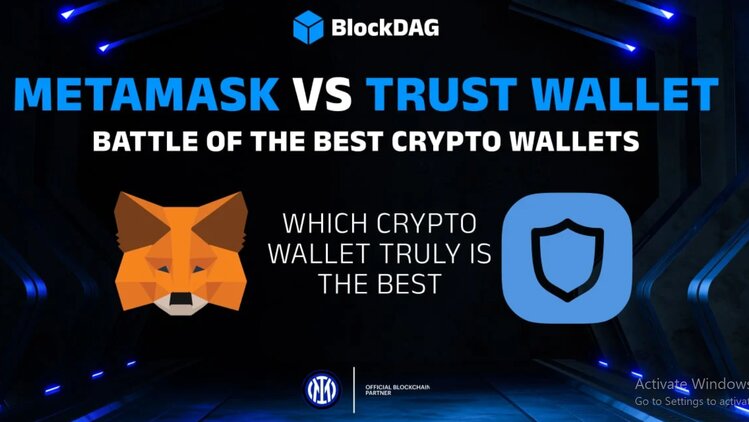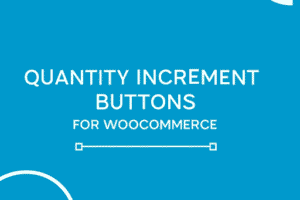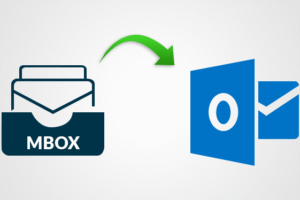In the ever-expanding world of cryptocurrencies, having a reliable and secure wallet is crucial for every investor, trader, or enthusiast. Among the many choices available, MetaMask and Trust Wallet stand out as two of the most popular and trusted non-custodial crypto wallets. Millions of users globally rely on these wallets to store, send, and trade digital assets, while enjoying easy access to staking, decentralized finance (DeFi) projects, and decentralized applications (dApps).
This blog will dive deep into a head-to-head comparison of metamask vs trust wallet, exploring their key features, differences, and strengths to help you decide which wallet best fits your crypto needs.
1. Overview of MetaMask and Trust Wallet
MetaMask began as an Ethereum-only wallet but has since evolved to support multiple EVM-compatible blockchains, such as Binance Smart Chain (BSC) and Polygon, although these require manual configuration. Trust Wallet, meanwhile, supports a wider variety of blockchains out-of-the-box, including Binance Chain, Solana, Ethereum, and more Layer-1 blockchains. This broad support makes Trust Wallet an attractive choice for users who want multi-chain functionality without extra setup.
Both wallets are free to use, though transaction and swap fees apply based on network conditions and services used. Both are non-custodial, meaning users hold their private keys and maintain full control of their funds, enhancing security but also placing responsibility for safe key management on the user.
2. Blockchain Compatibility
MetaMask was originally designed for Ethereum, so its primary strength lies in Ethereum and Ethereum Virtual Machine (EVM) compatible networks. While you can add networks like Binance Smart Chain or Polygon manually, it requires some technical know-how.
Trust Wallet, on the other hand, supports multiple blockchains by default. This includes major networks such as Binance Chain, Ethereum, Solana, and many others. This native multi-chain support allows users to manage various assets across different networks without manual configuration, making Trust Wallet more user-friendly for multi-blockchain users.
3. Token Swapping
Both wallets have built-in token swap features. MetaMask’s swapping mainly supports Ethereum-based tokens, leveraging aggregated liquidity sources to give competitive rates directly inside the app.
Trust Wallet also allows swapping but offers more flexibility by supporting swaps across other networks, including Binance Smart Chain (BSC). This broader network swap support gives Trust Wallet a slight edge for users wanting to trade tokens from multiple ecosystems seamlessly.
4. NFT Handling
Non-Fungible Tokens (NFTs) have become a major part of the crypto world. Both MetaMask and Trust Wallet support NFTs, but their user experience differs.
MetaMask’s NFT support is primarily focused on Ethereum-based NFTs and lacks a comprehensive user interface for managing NFTs on other networks. In contrast, Trust Wallet offers a more extensive NFT management experience, supporting NFTs from multiple blockchains, making it the better choice for NFT collectors who want to diversify their collections across various ecosystems.
5. dApp Browsing
Interacting with decentralized applications (dApps) is a critical feature for many crypto users.
MetaMask excels in desktop environments thanks to its popular browser extension that integrates smoothly with Web3 apps. While it also has a mobile app with a dApp browser, the desktop experience remains more powerful and fluid.
Trust Wallet offers a mobile dApp browser and also provides a desktop browser extension, aiming to provide a comparable user experience.
6. Staking Capabilities
Staking is a popular way to earn passive income with cryptocurrencies, and both wallets offer staking features.
Trust Wallet supports integrated staking for various cryptocurrencies such as Binance Coin (BNB), Tezos (XTZ), and others, making it convenient for users to stake assets directly in the app without moving funds elsewhere.
7. Security Features
Security is paramount in the crypto space. Both MetaMask and Trust Wallet are non-custodial, meaning users keep their private keys and thus have full control and responsibility over their funds.
Both wallets are open-source, allowing community audits and transparency of their codebases. However, the primary risks come from user errors like phishing attacks or poor security hygiene. Both wallets face similar security threats, so users must practice good security habits—such as safeguarding seed phrases, using hardware wallets for large holdings, and verifying URLs and dApp permissions carefully.
10. Which Wallet is Best for You?
Choose MetaMask if:
You primarily use Ethereum and EVM-compatible networks.
You prefer a powerful desktop browser extension for seamless dApp and DeFi interactions.
You want easy access to Ethereum DeFi projects and decentralized applications.
Choose Trust Wallet if:
You want a mobile-friendly wallet with native multi-blockchain support.
You are interested in managing NFTs across multiple blockchains.
You want integrated staking and token swaps on several networks without manual setup.
Ultimately, the best wallet depends on your specific use case and preferences. Both MetaMask and Trust Wallet excel in different areas, making them complementary tools in the crypto ecosystem rather than direct rivals.
The Wallet Wars Are Just The Beginning — Introducing BlockDAG
While wallets like MetaMask and Trust Wallet remain essential tools for managing crypto assets, the blockchain landscape is evolving rapidly. One of the most exciting innovations on the horizon is BlockDAG, a hybrid model combining blockchain and Directed Acyclic Graph (DAG) technologies.
BlockDAG is gaining momentum thanks to its scalability, speed, and security features that aim to overcome some of the limitations of traditional blockchains. With over $216 million raised in ongoing presales and a growing community, BlockDAG is poised to make a significant impact in the crypto space.
For miners, BlockDAG offers practical mining solutions including easy-to-use calculators and specialized mining devices like the X10 and X100 ASIC miners, capable of generating substantial BDAG tokens daily. Its Ambassador Program fosters community growth and education, further bolstering its position.
Conclusion
MetaMask and Trust Wallet are two of the best crypto wallets available today, each tailored to different user needs. MetaMask shines in Ethereum-centric DeFi and desktop dApp interactions, while Trust Wallet offers a mobile-friendly, multi-chain, NFT-supporting experience with integrated staking.
Meanwhile, new technologies like BlockDAG hint at the future direction of blockchain innovation, promising to complement and possibly transform how users interact with cryptocurrencies.





